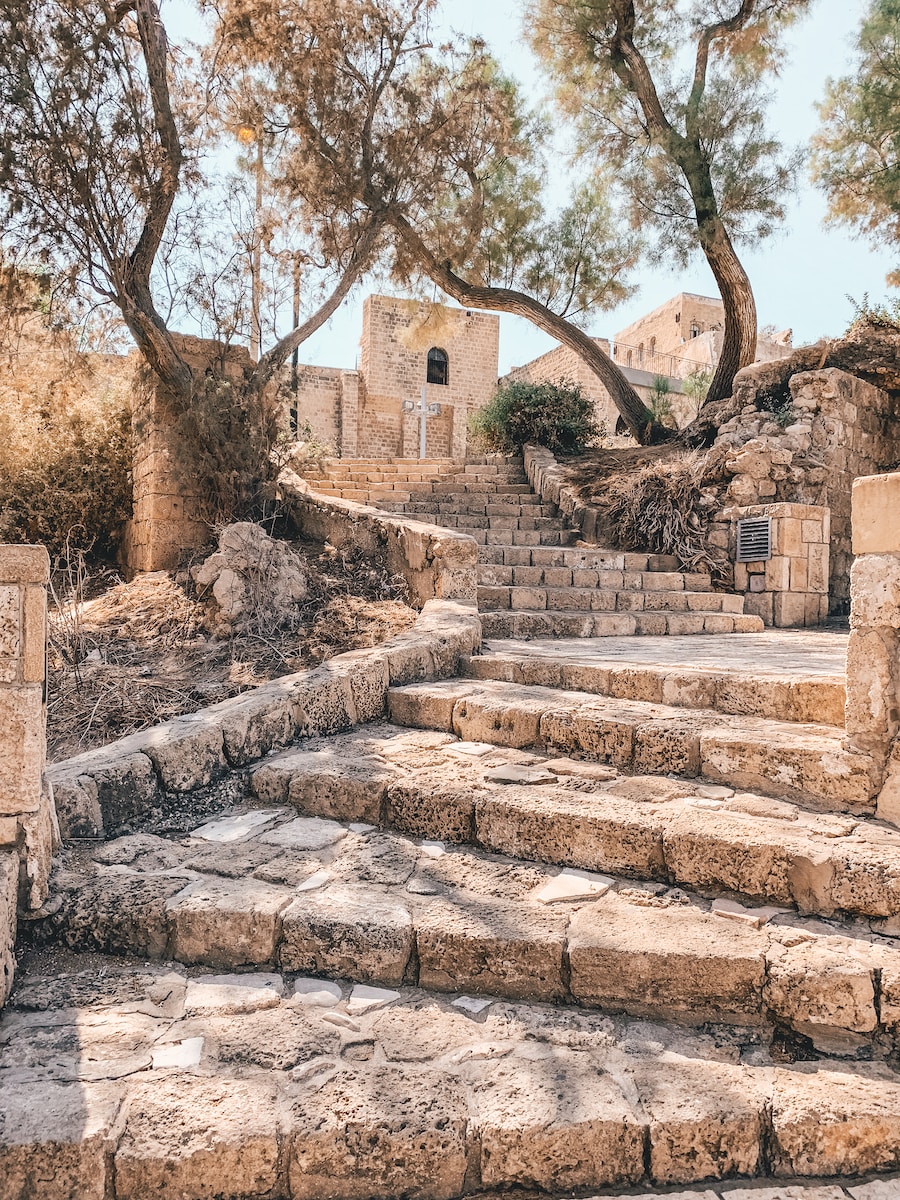Isaiah Chapter 5, an Old Testament passage attributed to the prophet Isaiah, presents a powerful allegory of a vineyard to convey a profound message about God’s relationship with Israel, the impending judgment, and the anticipation of Messianic redemption.Through the use of vivid imagery and poetic language, this chapter captures the emotions of God’s disappointment and His call for repentance. This article will explore the symbolism of the allegorical vineyard, the significance of the prophetic judgment, and the connection to the anticipation of Messianic redemption.
Understanding the allegory of the vineyard helps us grasp the depth and significance of God’s disappointment with Israel.The imagery of a vineyard would have resonated with the audience of that time, as it was a common symbol used to represent the relationship between God and His people in the Hebrew Bible. In this allegory, God is portrayed as a loving and attentive vineyard owner who invests time, effort, and resources into nurturing the vineyard. He expects it to bear good fruit, which represents Israel’s faithfulness and obedience to His commandments.
Overview of Isaiah Chapter 5
Isaiah Chapter 5 is part of the Book of Isaiah, believed to have been written by the prophet Isaiah during the 8th century BCE. The chapter consists of a poetic song depicting Israel as a vineyard owned by God. It revolves around themes of God’s expectations for the vineyard to bear fruit, the disappointment with the vineyard producing wild grapes, and the impending judgment.
The chapter begins with a metaphorical description of God’s care for the vineyard.He meticulously prepares the land, clears the stones, plants choice vines, and builds a watchtower and a winepress. The imagery conveys God’s loving and nurturing nature towards Israel. God’s efforts to create the perfect environment for the vineyard represent His desire for Israel to flourish and be fruitful.
Despite God’s meticulous care, the vineyard disappoints Him by yielding wild grapes, which are bitter and unusable for making good wine. This failure symbolizes Israel’s moral decay and disobedience to God’s commandments. The vineyard’s failure to produce good fruit reflects the unfaithfulness of Israel to their covenant with God.
The chapter continues with God’s pronouncement of judgment upon the vineyard and His decision to remove His protection and care. He declares that He will no longer prune or water the vineyard, allowing it to be overrun by thorns and briers. This represents the withdrawal of God’s favor and the consequent destruction that will befall Israel. The chapter paints a bleak picture of the impending judgment and the consequences of Israel’s disobedience.
#Isaiah 5 #Allegorical Vineyard #Prophetic Judgment #Messianic Context #Jesus Christ #Prophet Isaiah #Spiritual Symbolism #Divine Justice #Symbolic Imagery #Spiritual Rejection #Anticipation of Messiah #Messianic Redemption #Moral Decay #Prophetic Warning #Covenantal Consequences #Spiritual Rebellion #Symbolic Harvest #Divine Expectations #Theology of Restoration #Biblical Prophecy #Spiritual Reflection #Symbolic Vineyard #Allegorical Interpretation #Spiritual Renewal
The Allegorical Vineyard
The allegorical vineyard in Isaiah Chapter 5 serves as a symbolic representation of Israel as God’s chosen people. God, portrayed as the owner of the vineyard, had high expectations for Israel to produce good fruit, symbolizing righteousness and obedience. However, instead of bearing good fruit, the vineyard yielded wild grapes, representing the moral decay and disobedience of Israel. Despite God’s diligent care for the vineyard, it ultimately leads to its destruction as a consequence of Israel’s unfaithfulness.
The symbolism of the allegorical vineyard is multifaceted and rich in meaning. It represents the covenant relationship between God and Israel, with God being the faithful caretaker and Israel being the chosen people. The vineyard also symbolizes God’s provision and blessings bestowed upon Israel. Just as a vineyard owner expects a fruitful harvest from his vineyard, God expected Israel to produce good fruit in the form of righteousness, justice, and obedience to His commandments.
The production of wild grapes instead of good fruit signifies Israel’s moral decay and failure to live up to God’s expectations. The wild grapes represent the sins and disobedience of the people, such as idolatry, injustice, and oppression of the weak and vulnerable. Despite God’s patient and loving care for the vineyard, Israel’s unfaithfulness leads to their own destruction. This serves as a powerful reminder of the consequences of disobedience and the importance of remaining faithful to God’s covenant.
In addition to the symbolism of the vineyard itself, the allegory also sheds light on the role of the vineyard owner, who represents God. The owner’s meticulous care and investment in the vineyard demonstrate God’s love and desire for Israel to flourish. However, the owner’s disappointment and subsequent judgment reflect the righteous anger of God towards Israel’s disobedience.
Understanding Prophetic Judgment
Prophetic judgment plays a significant role in Isaiah Chapter 5, serving as a warning and a call to repentance for Israel’s sins. God poses two rhetorical questions, emphasizing His disappointment and questioning Israel’s actions. He asks, “What more could have been done for my vineyard that I have not done for it?” and “Why did it yield only bad fruit?”. These questions convey God’s frustration and His desire for Israel to recognize their wrongdoing.
The impending destruction of the vineyard represents a refining process through which Israel must pass to restore their relationship with God. The chapter includes six woes pronounced against various sins of the people, highlighting the lack of justice and righteousness in their treatment of others. These woes denounce the oppression of the poor, greed, immorality, and the neglect of God’s word and deed. They serve as a wake-up call to the people, urging them to repent and turn back to God.
The concept of prophetic judgment in Isaiah Chapter 5 is not solely focused on punishment but also on restoration. The destruction of the vineyard is not meant to be permanent but rather a necessary process for Israel’s purification and eventual restoration. It represents God’s desire to refine His people, removing their impurities and leading them back to righteousness.
Significance of Messianic Redemption
Isaiah Chapter 5 foreshadows the anticipation of Messianic redemption, referring to the future coming of the Messiah. The vineyard metaphor and prophetic judgment serve as a backdrop for the hope of a future restoration and redemption of Israel. The anticipation of Messianic redemption in Isaiah Chapter 5 finds connections with New Testament teachings, particularly Jesus’ discourse on the vine and its branches.
The concept of Messianic redemption emphasizes the belief that, in the future, God will send a Messiah who will bring salvation and restoration to His people. This hope is rooted in the promises made by God throughout the Hebrew Bible, including Isaiah Chapter 5. The allegorical vineyard and the prophetic judgment serve as reminders of the need for redemption and the eventual fulfillment of God’s promises.
The anticipation of Messianic redemption is also closely tied to the concept of a remnant, a faithful group within Israel. Despite the impending judgment and destruction, there will always be a remnant, a holy seed, that remains faithful to God. This remnant represents the hope of future restoration and the fulfillment of God’s covenant promises.
The passage in Isaiah Chapter 5 serves as a bridge between the Old Testament and the New Testament, connecting the prophecies and expectations of the Hebrew Bible with the teachings of Jesus and the early Christian community. The imagery of the vineyard and the themes of judgment and redemption find resonance in the teachings of Jesus, particularly in his discourse on the vine and its branches. This connection highlights the continuity of God’s plan for salvation and the fulfillment of His promises through Jesus, the Messiah.
The Song of the Vineyard in Context
To fully understand the significance of Isaiah Chapter 5, it is essential to place it within the broader context of the book of Isaiah. The book of Isaiah contains prophecies and messages of repentance, redemption, and restoration. Isaiah Chapter 5 stands out for its vivid imagery and poetic language, capturing the emotional depth of God’s disappointment and impending judgment.
Isaiah, as the prophet delivering the message, assumes the role of the speaker in the allegory, representing God’s beloved people, Israel. His encounter with God, symbolized by the burning coal touching his lips, signifies the purging of sin and his commission to speak on behalf of God. Isaiah’s role as a prophet is to deliver God’s message to the people, calling them to repentance and warning them of the impending judgment.
The song of the vineyard employs Hebrew poetry, utilizing parallelism, imagery, and metaphors to convey its message effectively. The poetic language adds depth and emotional intensity to the text, making it more impactful for the audience. By using the metaphor of a vineyard, Isaiah effectively conveys the message to his audience, drawing upon their agricultural understanding.
Symbolism and Imagery in Isaiah Chapter 5
Isaiah Chapter 5 is rich in symbolism and imagery, which enhances its message and impact. The vineyard in Isaiah Chapter 5 symbolizes God’s people, representing His provision, abundance, and celebration. Just as a vineyard owner expects a bountiful harvest, God expects His people to bear good fruit in the form of righteousness and obedience.
The production of wild grapes instead of good fruit symbolizes Israel’s moral decay and failure to live up to God’s expectations. The wild grapes represent the sins and disobedience of the people, reflecting their unfaithfulness to the covenant with God. Despite God’s patient care and nurturing, Israel fails to produce the desired fruit.
The refining fire mentioned in Isaiah Chapter 5 represents the purging of sin and the necessary process for Israel’s restoration. This imagery conveys the idea that judgment and destruction are not the end but rather a means of refining and purifying the people. Through this process, Israel can be restored to a state of righteousness and obedience.
The Consequences of Neglecting Justice and Righteousness
Isaiah Chapter 5 includes six woes pronounced against the sins of the people, denouncing their oppression of the poor, greed, and immorality. These woes serve as a warning against the consequences of neglecting justice and righteousness, which ultimately lead to the destruction of the vineyard. The passage highlights the dangers of alcoholism and the rationalization of immoral behavior.
The woes pronounced in Isaiah Chapter 5 reveal the moral decay and unrighteousness prevalent among God’s people. They denounce the oppression of the poor, the perversion of justice, and the neglect of God’s commandments. By neglecting justice and righteousness, the people have turned away from God’s intended purpose for them and have brought destruction upon themselves.
The passage also serves as a cautionary reminder of the destructive nature of sinful behaviors. The consequences of neglecting justice and righteousness are not only spiritual but also have practical implications. They lead to the breakdown of society, the suffering of the vulnerable, and ultimately the destruction of the people.
The Role of the Prophet Isaiah
In Isaiah Chapter 5, Isaiah assumes the role of the speaker, representing God’s beloved people Israel. As a prophet, Isaiah delivers God’s message to the people, calling them to repentance and warning them of the impending judgment. Isaiah’s encounter with God, symbolized by the burning coal touching his lips, signifies the purging of sin and his commission to speak on behalf of God.
Isaiah’s role as a prophet is not limited to delivering messages of judgment and condemnation. He also offers hope and restoration to the people. Despite the impending destruction, Isaiah’s message carries the promise of redemption and the possibility of a faithful remnant that will remain steadfast in their relationship with God.
Isaiah’s role as a prophet is not an easy one. He faces rejection and opposition from the people to whom he delivers God’s message. Despite this, he remains faithful to his calling and continues to proclaim the word of God. Isaiah’s example serves as an inspiration for all who are called to speak truth and righteousness in challenging times.
Lessons for Today
The messages and themes in Isaiah Chapter 5 continue to resonate today, reminding us of the importance of bearing good fruit in our lives. The consequences of neglecting justice and righteousness serve as a cautionary reminder of the destructive nature of sinful behaviors. The anticipation of Messianic redemption encourages us to seek hope and restoration in our relationship with God.
The allegory of the vineyard in Isaiah Chapter 5 challenges us to examine our own lives and actions. It prompts us to reflect on whether we are bearing good fruit, fulfilling our purpose, and living in obedience to God’s commandments. It also reminds us of the need for repentance and the possibility of restoration, even in times of judgment and destruction.
Isaiah Chapter 5 serves as a reminder that God’s expectations for His people have not changed. He desires righteousness, justice, and obedience. It calls us to examine our own lives and to strive for a deeper relationship with God, bearing good fruit that will bring honor and glory to Him.
Conclusion: The Profound Symbolism of the Allegorical Vineyard
In conclusion, Isaiah Chapter 5 presents a profound allegory of a vineyard to convey God’s disappointment with Israel, the impending judgment, and the anticipation of Messianic redemption. The allegorical vineyard symbolizes Israel as God’s chosen people, expected to bear good fruit in the form of righteousness and obedience. However, the vineyard yields wild grapes, representing Israel’s moral decay and failure to live up to God’s expectations.
The symbolism and imagery in Isaiah Chapter 5 provide a powerful message about the consequences of neglecting justice and righteousness. The chapter serves as a call to repentance and a reminder of the need for restoration. It also points to the anticipation of Messianic redemption, offering hope for a future restoration and fulfillment of God’s promises.
The messages and themes in Isaiah Chapter 5 continue to resonate today, reminding us of the importance of bearing good fruit, seeking justice, and pursuing righteousness in our lives. It prompts us to examine our own actions and attitudes, and to strive for a deeper relationship with God. Isaiah Chapter 5 invites us to reflect on the enduring relevance and timeless messages of the chapter and to consider our own lives and relationship with God.



